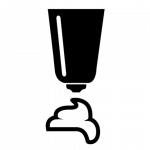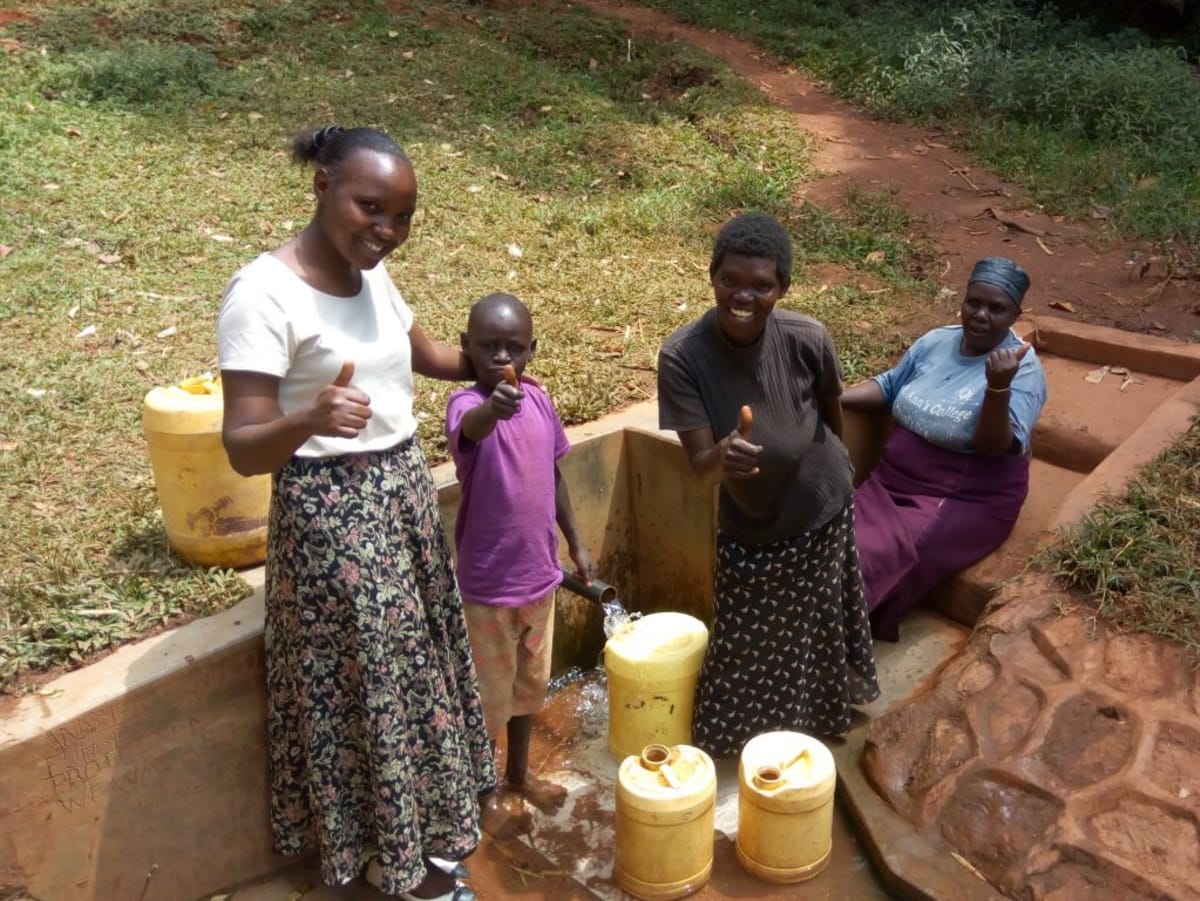Andrea Kong'o Spring is one of many sources on which people from Shitaho Community rely. This water gathers in a pool that is open to contamination in many ways; rain washes feces, fertilizers, and garbage into the water. People and animals step in and out of the water, not to mention the animals that drink directly from the spring.
Outbreaks of typhoid and cholera run rampant through the community, draining people's time, finances, and overall opportunity.
Protecting Andrea Kong'o Spring has been deemed necessary for the success of this community. Construction will protect the spring's water from outside contaminants, providing local families with the clean water they need.
Welcome to the Community
A normal day begins early in the morning when students walk to school. Men and women do various chores and then proceed with the day's activities. Members of Shitaho Community engage in small-scale farming. They plant maize, beans, vegetables and sugarcane. Apart from farming, the community members makes bricks and extract stones or hardcore used for construction.
What makes this community special is their high level of peace, love, and cooperation. The members love each other and keep the peace. There are many far away members who travel to the spring, and those members bordering the spring have provided roads for the others. Students from the nearby university also stay in this community, and share homes with the locals. They're fitting in just like they're living in their real homes. They get water from the same spring, buy goods from the community members and engage in small business.
Water Situation
Women begin their day by going to the spring to fetch water for their families. Fetching water is an activity dominated by the women, observed holding their jerrycans as they line up at the spring. They return to their homes to continue with house chores such as sweeping the compound. Some women then join the men doing casual labour like fetching firewood to sell. Men here also fetch water, but mostly for commercial purposes.
A person must go very early in the morning or late in the evening to get water, because the more people fetching the water, the dirtier it becomes. People dunk their containers in the water to fill them, and others even step into the water. After filling their containers, women lift them high on their heads to begin the journey home.
When delivered home, water is separated into storage containers by use. The 100-liter plastic tanks are reserved for cooking and cleaning, and the clay pots are set aside for drinking in the living room. Locals say that the clay pots with covers keep the water cooler.
Sanitation Situation
The pit latrines here are not in good condition, for they are made of mud and wooden slats. They are difficult to clean and also to use; urine is splashed around the floor, predisposing users to hygiene-related diseases. Fortunately, a majority of the community at least has this basic type of pit latrine. Nevertheless a handful of community members don't have latrine access and must either share with their neighbor or use the privacy of bushes.
There were many other households that didn't have basic tools like dish racks and clotheslines. We spoke to them about their importance, and they seemed willing to learn how to construct these helpful tools.
Plans: Hygiene and Sanitation Training
Community members will attend hygiene and sanitation training for at least two days. This training will ensure participants are no longer ignorant about healthy practices and their importance. The facilitator plans to use PHAST (Participatory Hygiene and Sanitation Transformation), CLTS (Community-Led Total Sanitation), ABCD (Asset-Based Community Development), group discussions, handouts, and demonstrations at the spring.
Training will also result in the formation of a committee that will oversee operations and maintenance at the spring. They will enforce proper behavior around the spring and delegate tasks that will help preserve the site, such as building a fence and digging proper drainage.
Plans: Sanitation Platforms
On the final day of training, participants will select five families that should benefit from new latrines.
Training will also inform the community and selected families on what they need to contribute to make this project a success. They must mobilize locally available materials, such as bricks, clean sand, hardcore, and ballast. The five families must prepare by sinking a pit for the sanitation platforms to be placed over. All community members must work together to make sure that accommodations and food are always provided for the work teams.
Plans: Spring Protection
Fetching water is predominantly a female role, done by both women and young girls. Protecting the spring and offering training and support will therefore help empower the female members of the community by giving them more time and efforts to engage and invest in income-generating activities.
Shitaho Community is home to thousands, so Andrea Kong'o Spring is one of a couple other water sources being protected this year.
In addition, protecting the spring will ensure that the water is safe, adequate and secure. Construction will keep surface runoff and other contaminants out of the water. Farmer Christopher Indakala told us, "We are so happy, and this is God's doing. We have suffered for long and even politicians have kept promising to come to our rescue but in vain. We are very much ready to coordinate and collaborate with you to see our spring protected so that we can have safe and enough drinking water."



 Rehabilitation Project
Rehabilitation Project































